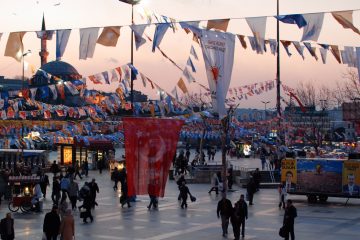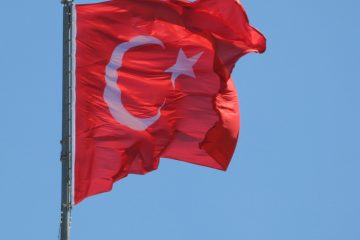
Six Takeaways from Turkey’s Election
According to the official results, the coalition led by the ruling AKP has secured a parliamentary majority, and Recep Tayyip Erdoğan remains president following the first ever simultaneous parliamentary and presidential election on June 24. Below are some takeaways from Turkey’s historic election: Erdoğan was not built in a day, and neither will be Ince. Erdoğan was elected mayor of Istanbul in 1994 and undertook many practical reforms involving infrastructural improvements. He bided his time until 2002, when he led the AKP to power. Under his mayoral watch, the municipal water system was improved, metro lines were built, trash was picked up regularly, and a political machine was built slowly thanks to the support of small business owners and conservative migrants …

Turkey’s Election: “It’s the Economy, Saftirik”
The lights shine, the cameras zoom, and the serious intro music fades. “Let’s talk about the hottest topic: the economy,” says the CNN Türk news program host. On the left are three journalists from mainstream Turkish news outlets, on the right is Muharrem İnce, the presidential candidate of CHP, the center-left party and opposition candidate with the best shot at unseating president Recep Tayyip Erdoğan. The stone-faced journalist from Hürriyet asks the first question: “It is said that speculators, FETÖ (the term for the followers of accused coup plotter Fethullah Gülen), and economic masterminds are working together and have hurt the capacity of the AKP to help the economy. It’s an economic coup, they say. What do you say?” İnce doesn’t take the …

Coup attempt and terror bombings demonstrate Turkish lives don’t matter to Erdoğan and the AKP
Last week’s coup attempt by military forces in Turkey — the military’s first overt attempt to take power since 1980 — came as a great shock to the international community. At least 290 people were killed and 1,440 wounded. The coup also spurred a dramatic wave of purges; less than 24 hours after the turmoil began, 2,839 army members and a member of the constitutional court were arrested, while 2,745 judges and five members of the Supreme Board of Judges and Prosecutors were removed from their posts. The purges only intensified thereafter; within a week, about 60,000 soldiers, police, judges, civil servants and teachers found themselves detained, suspended or under investigation. The government’s rhetoric and consistent inaction, contextualized within its wider response to the …









